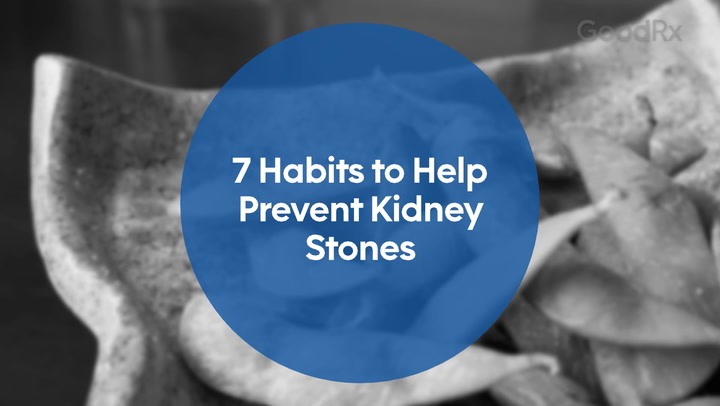Can You Really Have a ‘Sugar High’ or a ‘Sugar Crash’?
Key takeaways:
Many people think that eating sugar will give you a sudden burst of energy, or a “sugar high.” But this common belief is more myth than reality.
The “sugar crash” is more complicated. You might feel sudden sluggishness after eating carbohydrates while your blood sugar level returns to normal. But most people don’t develop true hypoglycemia (low blood sugar).
Eating sugar does not make children hyperactive, despite parents’ perception that it does.
Most people have used the terms “sugar high” or “sugar crash” at some point. But what does that really mean? Can you get high blood sugar (hyperglycemia) from eating too much sugar?
In this article, we’ll discuss what happens when your body gets a sudden intake of sugar, and we’ll address popular beliefs about the effects of sugar on children.
What’s going on when you experience symptoms of a ‘sugar high’?
Ask most people, and they’ll tell you that eating a candy bar gives them a quick burst of energy. But what does science tell us? It turns out that the idea of a “sugar high” is a myth. In fact, for most people, blood sugar returns to normal shortly after a meal.
Save every month on GLP-1 meds with GoodRx
Save an average of $235 on FDA-approved GLP-1s like Ozempic and Zepbound.

When you eat glucose, your body responds quickly by releasing insulin, which pushes that glucose into your cells and keeps your glucose within the normal range. So it’s rare to reach high levels of blood sugar. And a recent meta-analysis looking at over 31 studies concluded that carbohydrate consumption didn’t have any effect on mood and didn’t lead to an energy boost.
This may not mesh with your experience. Maybe you really feel like you get a burst of energy from eating a favorite doughnut. So what’s going on? Well, that feeling you get may have less to do with blood sugar and more to do with the fact that sugar causes the brain to release dopamine and opioids — chemicals that give you a feeling of pleasure.
The jolt of energy you feel is likely from the jolt of dopamine, the same chemicals released with other addictive triggers (like alcohol or smoking). In fact, a growing body of research shows that sugar affects the brain in a similar way as other addictive substances — by lighting up pleasure centers and creating cravings for more.
What does it mean to have high blood sugar?
High blood sugar (hyperglycemia) means that the glucose level in your blood is higher than normal.
Hyperglycemia doesn’t happen often unless someone has a condition like diabetes or prediabetes. Sometimes it happens with other medical conditions, or medications such as steroids may cause it.
Hyperglycemia can lead to symptoms like:
Increased peeing
Increased hunger and/or thirst
Headaches
Breath that smells fruity
Abdominal pain
Confusion
Blurred vision
Read more like this
Explore these related articles, suggested for readers like you.
If you’re experiencing these symptoms, a quick blood test can help figure out if you might have hyperglycemia. If your blood sugar is high enough, you may also develop glucose in your urine (glucosuria). In this case, a urine test can detect glucose. If you don’t have prediabetes or diabetes, no amount of sugar you consume will cause these symptoms.
Are ‘sugar crashes’ real?
Yes and no. A “sugar crash” isn’t really a medical term, but many people use this phrase to describe the feeling of sluggishness that can happen shortly after eating a lot of carbohydrates.
Reported symptoms of a “sugar crash” include:
A sudden feeling of tiredness
Brain fog
Trouble concentrating
And studies have confirmed that people do tend to feel more tired and less alert in the hour after eating carbohydrates. Scientists don’t understand exactly why this happens. It’s possible that the process of insulin being released and bringing down your blood sugar to normal levels makes you feel more tired.
So, yes, that sudden exhaustion — or “sugar crash” — may be related to your sugar coming back down to normal levels. But it’s not that same as having truly low blood sugar levels.
Put another way, that nap you suddenly want to take isn’t all in your head. But if you check your blood sugar at that time, it won’t be abnormally low.
How is a ‘sugar crash’ different from hypoglycemia?
Hypoglycemia is when your blood sugar is lower than normal. For most healthy people, blood sugar won’t fall below normal levels. But some people have a condition in which their blood sugar drops below normal after meals. This is postprandial hypoglycemia.
In postprandial hypoglycemia, blood sugar levels drop below normal about 2 to 5 hours after a meal. This can often be an early sign that a person is more likely to develop diabetes.
Postprandial hypoglycemia occurs more often in people with:
Diabetes or prediabetes
Thyroid or other hormone problems.
Symptoms of true hypoglycemia are different — and more serious — than what people call a “sugar crash.” These symptoms include:
Fast heartbeat
Anxiety
Irritability
Sweating
Confusion
Difficulty concentrating
Fainting
Symptoms of hypoglycemia always need an evaluation by a trained medical professional.
Can sugar make people (and especially children) hyperactive?
Probably not. While parents at a birthday party might swear it’s the cake and desserts that are making their children bounce off the walls, in reality, other factors are likely at play.
Multiple studies looking at the link between sugar intake and hyperactivity have failed to show a connection. For example, one study from 2017 looked at 12 double-blind placebo-controlled sugar challenges in both children with and without ADHD. It didn’t find resulting hyperactivity or behavioral problems in the group that consumed candy or chocolate.
You may be thinking, “That’s impossible, you haven’t seen my child hyped up on candy!” But consider this: What if the belief that sugar makes kids hyper could be what makes adults think their kids are acting up?
One study compared a group of moms told that their sons drank a large quantity of sugar with a control group in which moms were told they had a sugar-free beverage (all the children actually drank the same sugar-free beverage). The moms who believed that their children ingested sugar rated them as significantly more hyperactive. The researchers also noticed that these moms were more controlling and critical of their sons’ behavior during the study.
Can sugar affect a child’s behavior or cognitive skills?
Despite the common belief that eating sugar leads to bad behavior, trouble with concentration, and poor sleep in children, the science just doesn’t support this. Researchers looking at dozens of studies and hundreds of children have not found a link between sugar intake and the behavior, cognitive performance, or sleep among children.
When it comes to ADHD, the research is more complex. Children who drink high amounts of sugary beverages or have a diet high in refined sugar are more likely to have a diagnosis of ADHD. But the link is not clear. Researchers do not know if children with ADHD are more likely to seek out sugar-rich food or if the sugar itself might trigger ADHD in susceptible individuals.
Can you prevent a sugar high or a sugar crash?
What and how you eat and drink can affect how your blood sugar levels swing up and down after meals.
So, even though true “sugar highs” and “sugar crashes” don’t really exist, you can lessen the feelings of that rush and the later dip that you get after consuming certain types of carbohydrate-rich foods and drinks.
Here are some tips to try:
“Pre-load” your meal with protein or fat. Eat the protein-rich or fatty foods first, and keep the carbohydrate for the end.
Eat more slowly.Fast eating is associated with bigger spikes in blood sugar after a meal.
Eat fewer highly processed foods. Swap these out for more whole foods and minimally processed foods rich in fiber and protein.
Eat dinner early. There’s some evidence that this may lead to more stable blood sugar levels the next day.
Exercise 30 minutes after a meal. Light or vigorous exercise after meals can lower blood sugar spikes. Even a short walk can help.
The bottom line
The myth of a “sugar high” isn’t grounded in science. Hyperglycemia and hypoglycemia are not common in people who don’t have diabetes or prediabetes. Contrary to popular belief, eating sugar doesn’t make children hyperactive or cause problems with sleep. But this doesn’t mean that it’s OK to eat all the sugar you want! Eating a diet high in sugar has been linked to many medical conditions, including obesity, dental cavities, and high blood pressure. So there are still plenty of reasons to limit your sugar intake and aim for a balanced diet.
Why trust our experts?


References
Altuntas, Y., et al. (2019). Postprandial reactive hypoglycemia. Sisli Etfal Hastanesi Tip Bulteni.
Avena, N. M., et al. (2008). Evidence for sugar addiction: Behavioral and neurochemical effects of intermittent, excessive sugar intake. Neuroscience and Biobehavioral Reviews.
Colantuoni, C., et al. (2001). Excessive sugar intake alters binding to dopamine and mu-opioid receptors in the brain. Neuroreport.
Del-Ponte, B., et al. (2019). Dietary patterns and attention deficit/hyperactivity disorder (ADHD): A systematic review and meta-analysis. Journal of Affective Disorders.
Dimitriadis, G. D., et al. (2012). Regulation of postabsorptive and postprandial glucose metabolism by insulin-dependent and insulin-independent mechanisms: An integrative approach. Nutrients.
Harvard T. H. Chan School of Public Health. (n.d.). Carbohydrates and blood sugar.
Hoover, D. W., et al. (1994). Effects of sugar ingestion expectancies on mother-child interactions. Journal of Abnormal Child Psychology.
Krummel, D. A., et al. (2009). Hyperactivity: Is candy causal?. Critical Reviews in Food Science and Nutrition.
Mantantzis, K., et al. (2019). Sugar rush or sugar crash? A meta-analysis of carbohydrate effects on mood. Neuroscience and Biobehavioral Reviews.
Nakamura, K., et al. (2021). Eating dinner early improves 24-h blood glucose levels and boosts lipid metabolism after breakfast the next day: A randomized cross-over trial. Nutrients.
Nesti, L., et al. (2019). Impact of nutrient type and sequence on glucose tolerance: Physiological insights and therapeutic implications. Frontiers in Endocrinology.
O’Keefe, J. H., et al. (2008). Dietary strategies for improving post-prandial glucose, lipids, inflammation, and cardiovascular health. Journal of the American College of Cardiology.
Saito, Y., et al. (2020). Eating fast has a significant impact on glycemic excursion in healthy women: Randomized controlled cross-over trial. Nutrients.
Shambrook, P., et al. (2018). Glucose response to exercise in the post-prandial period is independent of exercise intensity. Scandinavian Journal of Medicine & Science in Sports.
Watson, E. J., et al. (2017). Total dietary sugar consumption does not influence sleep or behaviour in Australian children. International Journal of Food Sciences and Nutrition.
Yu, C. J., et al. (2016). Sugar-sweetened beverage consumption is adversely associated with childhood attention deficit/hyperactivity disorder. International Journal of Environmental Research and Public Health.





























